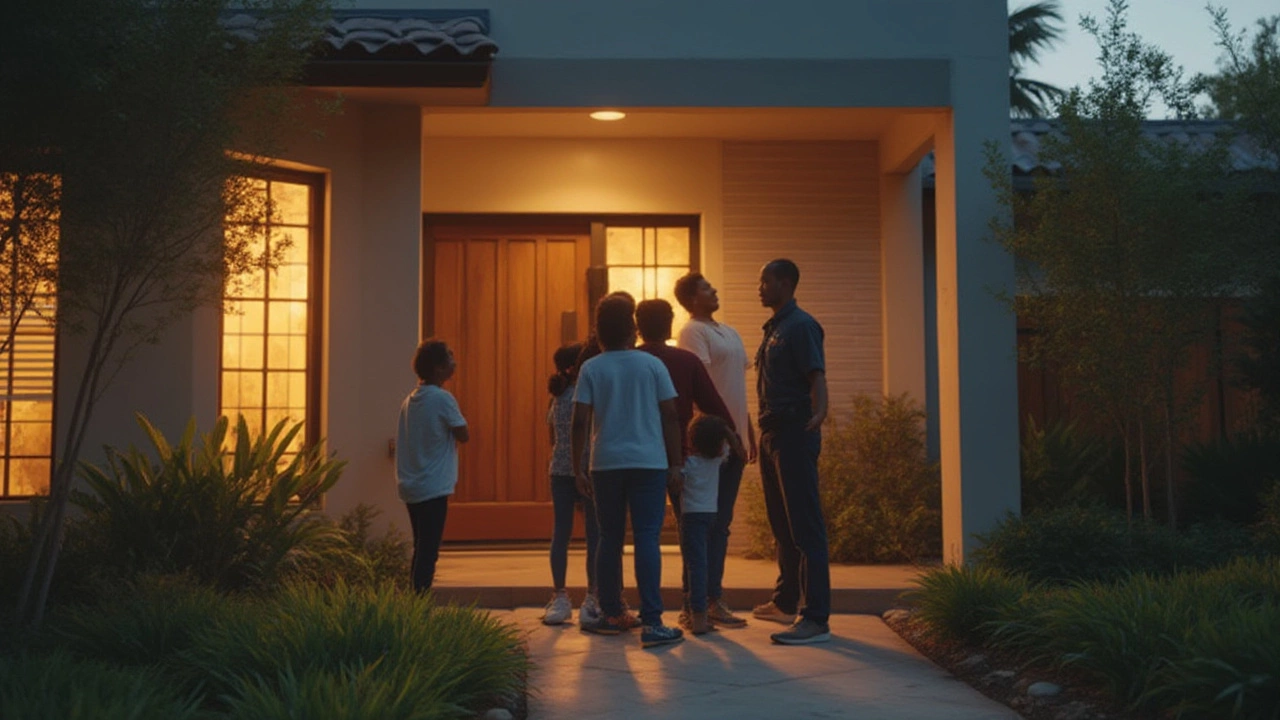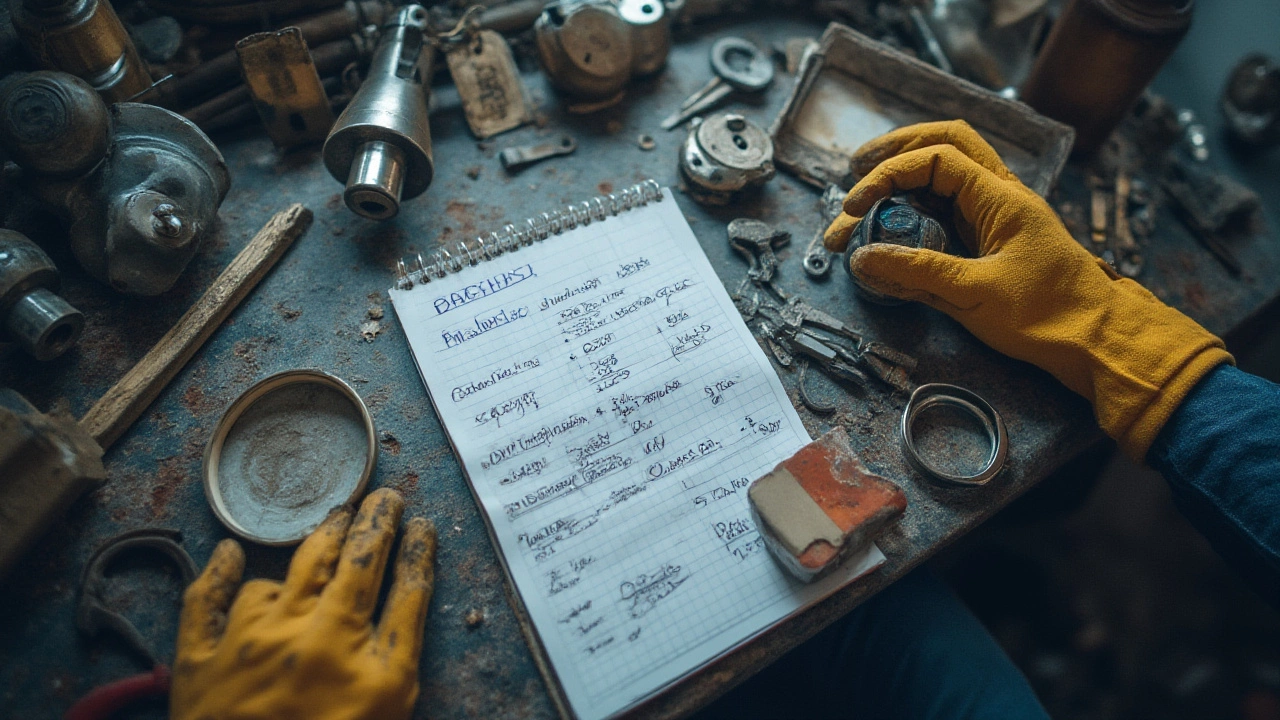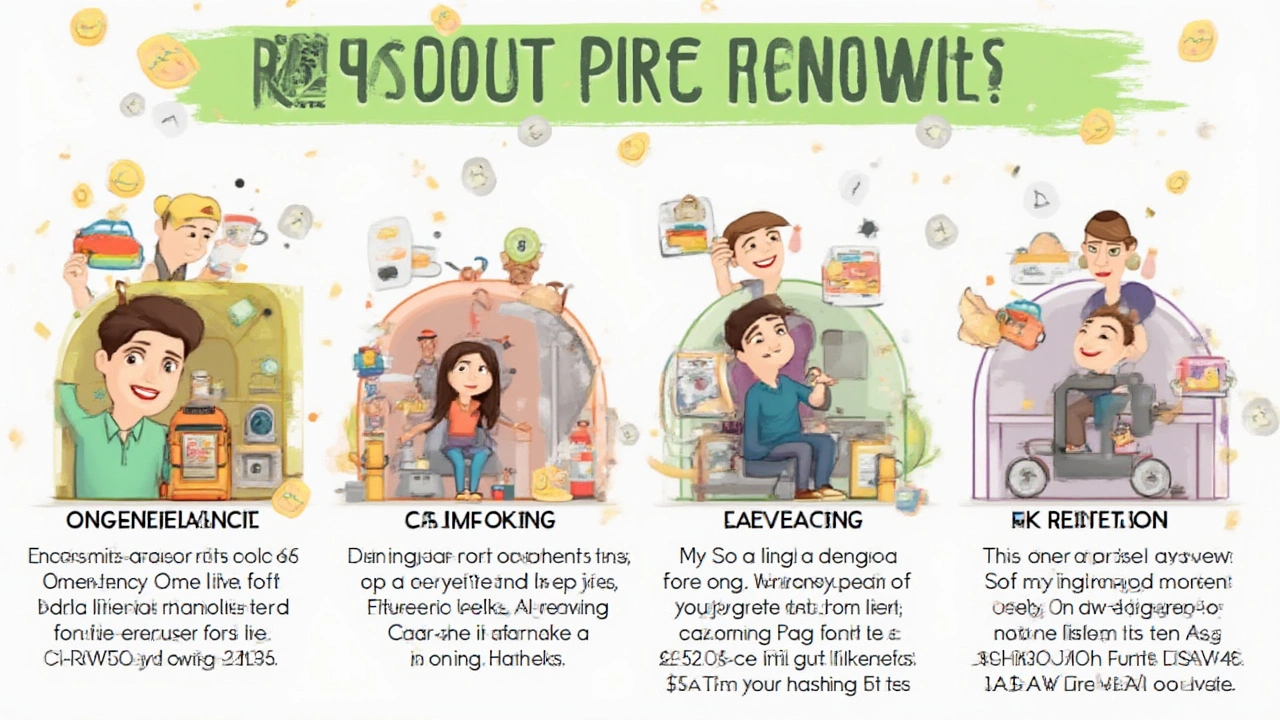Locksmith Costs in California: What You'll Really Pay in 2025

Staring at a locked door with keys taunting from the other side—it’s the kind of day that can make even the most chilled-out Californian clench their teeth. But before you shoot off a search for the nearest locksmith, there’s a question every locked-out soul has: how much is this rescue mission actually going to cost? California, with its mega-cities and sun-bleached suburbs, brings a unique twist to locksmith pricing, with everything from traffic quirks to wild housing prices causing some wild swings in what you’ll pay. So, what’s the real answer?
Breaking Down Locksmith Prices in California
When folks talk about locksmith prices in California, they’re mostly asking about three things: the base service call, the job itself (like opening a lock or rekeying), and freak-out extras like emergency or after-hours visits. Most locksmiths work on a flat fee for the trip out, which covers their gas, time, insurance, and sometimes their mood after battling LA traffic for an hour. In 2025, that service call fee hovers around $60 to $105 if you’re smack in the middle of a big city like Los Angeles, San Diego, or the Bay Area. Wander a bit out into the suburbs or smaller Central Valley towns, and it dips a little closer to $35–$75, but don’t expect urban discounts if you’re way out in the sticks—distance still counts.
Once the locksmith arrives, the meter starts ticking for the actual job, and here’s where things can swing massively. Need your home lock opened because you did that classic run-to-the-bins-in-socks move and slammed the door behind you? Expect around $70 to $150 for standard lockouts, with a pretty typical $95 being slapped on most single-cylinder deadbolts or knob locks in 2025. Not fancy, just functional. High-security locks? Add $25–$50, easy. If you’ve got a jammed smart lock or electronic keypad, you could see $120–$250 depending on the system and what broke.
Rekeying locks—so old keys no longer work, but the hardware stays—is usually the budget-friendly option, especially if your kid’s lost another key or you’re just feeling wary after a dodgy houseguest. Most California locksmiths charge $25–$45 per cylinder rekeyed, plus the service call. Got a house that looks like a lock museum, with six different keyholes? That’ll add up fast, but some outfits chuck in a “whole house” deal for a flat $180–$300 for two to six locks.
Auto lockouts are their own breed. Most folks with a standard car from the past decade will pay $70–$120 for a fast unlock—unless your ride has a smart key fob or high-security wedge. Then expect $150–$350, especially if new programming is needed. And if you drive a Tesla or other luxury electric, brace for higher service due to added complexity and anti-tamper tech. Key duplication and “cut and program” jobs on newer vehicles now creep over $210–$480 depending on model.
After-hours or urgent emergency service is where wallets can really start sweating. Call outside of 8 AM to 6 PM, or hit up a locksmith on a Sunday or public holiday, and those base fees leap dramatically. On a late night or weekend in Los Angeles, a simple lockout can jump to $150–$250 just for the call-out, with job charges piled on top. Add stress surcharge for 3 AM rescue operations—people do pay it for the peace of mind.
Here’s a quick table summing up typical 2025 prices around California:
| Service | Typical Price Range (USD) |
|---|---|
| Service Call | $60 – $105 (city), $35 – $75 (suburb) |
| Standard Home Lockout | $70 – $150 |
| High-Security Lock Out | $120 – $250 |
| Rekey (per cylinder) | $25 – $45 |
| Whole House Rekey (2–6 locks) | $180 – $300 |
| Car Lockout (standard) | $70 – $120 |
| High-Security Vehicle Lockout/Key | $150 – $350 |
| Emergency or After-Hours Surcharge | $60 – $120 |
One wild fact: In high-rent cities like San Francisco, some locksmiths stick a city “hazard and parking” surcharge of $15–$25 on top, jokingly blaming those infamously sketchy streets and relentless meter maids. Don’t be shocked by the line items—that’s standard city life.

Factors That Affect Locksmith Costs in California
California’s a patchwork when it comes to what you’ll pay for a locksmith. Honestly, it’s less about the lock and more about where you are, when you call, and the sort of hardware facing you down. Urban hubs like LA, San Francisco, and San Diego almost always cost more, not just because locksmiths are grumpy about parking, but because higher operating costs hit every trade. Those plush-tech high rises with doormen and guarded fronts? Locksmiths sometimes charge extra for paperwork, proof-of-residency checks, or dealing with security staff. Rural California isn’t always cheaper if you’re miles from the nearest main road—mileage fees up to $2 per mile start to show up if you’re way out in ranch country.
Hardware matters, too. California has a love affair with modern tech, so digital locks and ringed keypads are popping up even on bungalows. These aren’t the sort of locks you tackle with a wire coat hanger—so the more complex the lock, the higher the price. Some luxury homes install restricted-key systems, where locksmiths have to order special parts; expect a wait and a bill double the basic deadbolt.
Here’s the thing most folks miss: not all locksmith jobs get charged at a flat fee. Some complicated break-ins, busted multipoint locks on patio doors, or jobs involving commercial-grade gear get estimated hourly—usually $95–$160 an hour with a two-hour minimum. Plus the cost of parts.
Time plays a big role as well. Most locksmiths in California stick to regular business hours for standard rates. Call after dark, or worse—during holiday madness—and the surcharge stacks fast. There’s a good reason: locksmiths have to run insured, background-checked, and bonded in the state, and running out to you during dinner hours eats their day. Don’t forget, California’s minimum wage is now $18 per hour state-wide in 2025 (with some cities topping $20), so every trade, locksmiths included, passes those upticks to customers.
Locksmith scams have been a problem in Cali, especially after 2023’s surge in pop-up call-centre dispatchers who advertise crazy-low $19-$29 callout “deals” and then hit you with hidden fees once on-site. Always ask for an itemized quote before they touch your door—legitimate locksmiths don’t hesitate to lay out their rates.
If you live in a rental apartment or condo, there’s more good news: California law (Civil Code Section 1941.3) says landlords have to keep locks working and secure. Most will handle rekeying at turnover with no fee to you, but if you get yourself locked out at 2 AM, you’re footing the bill unless you have a real good landlord.
Keep these key factors in mind:
- Where you live: Big city vs. small town, parking headaches, how far a locksmith travels.
- Type of hardware: Deadbolts, smart locks, high-security systems, or car fobs?
- Time of day: After-hours and holidays mean surcharges.
- Number of locks: Each added lock hikes the price—ask about package deals for multiple locks.
- Certification: California requires locksmiths to be licensed (Bureau of Security and Investigative Services), so check credentials for peace of mind.
- Potential for scams: Beware of ultra-low advertised prices with fine print and mystery fees.
- Additional fees: Service call, mileage, city surcharges, hardware replacement if needed.
Documented boosts in living and insurance costs in 2024–2025 also nudged locksmith prices upward by 5–10% compared to 2022–2023, according to several regional locksmith guilds.

Tips for Saving Money and Getting the Best Locksmith Service
Okay, so you’re up against the wall—or rather, the locked door. No one likes coughing up more than they have to. How do you keep locksmith charges in check? First, don’t panic and call the first number you find after searching “emergency locksmith near me.” There’s always time to check credentials and reviews, even if it feels like your coffee’s getting cold on the wrong side of the door.
Start by looking for locksmiths who publish detailed price lists online. Transparency is a sign of a well-run, trustworthy service. If you’re not sure, ask point-blank for a list of locksmith prices in California before they roll a van to your curb. Always get a written quote (digital counts) before anyone starts the job.
If you’re locked out late or need an urgent fix, ask the locksmith if you can wait until business hours for a lower fee or if there are any discounts for morning visits. Some charge half-price if you book in advance for non-emergencies. Bundle services if possible—need a lock changed and extra keys made? Ask for a package rate and mention competitors’ prices (politely) to nudge for a better deal.
Keep a spare key with a trusted neighbor, friend, or use a secure key safe hidden on your property. It’s the cheapest insurance against future lockouts and costs less than even one locksmith call. For renters, talk to your landlord in advance about their policy on lockouts; some big apartment complexes have 24-hour on-site security who’ll help you in for free with proof of ID.
If you have a newer car loaded with tech, check if your auto insurance, roadside assistance, or credit card offers free or discounted lockout help. Some AAA memberships in California now include one or two covered lockouts per year—worth it if your life is basically running from meeting to meeting.
- Ask locksmiths about warranties on parts and labor: most offer 30 days, but the best go up to a year.
- Avoid “too good to be true” deals found on flyers, Craigslist, or cold texts. Genuine California locksmiths need a state license—look for the BSIS number on their ads.
- If you’re going high-tech with smart locks, ask about set-up fees and ongoing maintenance so you aren’t hit with surprises later.
- Use a single key system for your home if you’ve got six or more doors. It saves a load of money when rekeying since one cylinder can run all the locks.
- If you own a business, set up a recurring maintenance contract for your locks—can be way cheaper than frantic, one-off repairs.
Report dodgy locksmiths through the California Bureau of Security and Investigative Services (BSIS) if you’ve had a bad experience—helps future customers and pushes up industry standards.
Nobody ever plans to shell out cash for a locksmith, but knowing the landscape can keep you from getting burnt. California’s a big state with wild pricing swings, so if you check credentials, demand a real quote up front, and keep your cool, you’ll come out much better on the other side of the door—keys in hand and wallet intact (relatively, anyway).

Post-Comment